Some questions on the Hotline have staying power, and for good reason -- they cover the questions we ask ourselves time and time again. Join us as we revisit some of the most popular.
Today: Keep those fresh herbs going all through fall and winter.
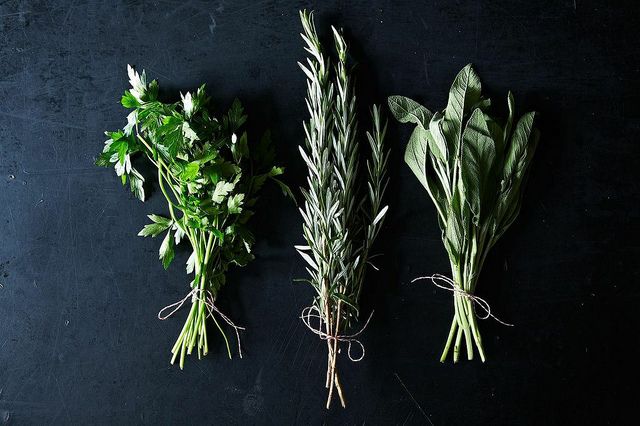
As summer winds down, you might be wondering how you can preserve some of the brilliant warm weather flavors to keep you going through the long, cold months ahead. While the cooler temperatures bring tons of hearty and wonderful food options, there’s nothing quite like a unexpected pop of fresh herbal flavor in the winter.
Luckily, herbs are some of the easiest foods to save. You can preserve them by themselves, or add them to a pesto, butter, or syrup that can be saved for later, and the Food52 community has lots of advice for accomplishing this task.
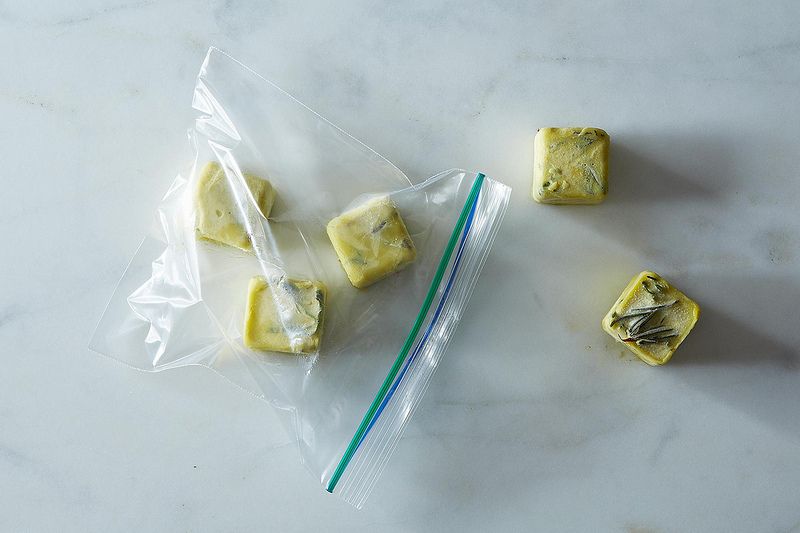
Just the Herbs, Please:
- It’s easy to preserve herbs on their own. Inpatskitchen suggests making herb-filled ice cubes: “I've frozen fresh herbs in ice cube trays with water to cover. Once frozen you can keep them in freezer bags and take out as you need them.” LobsterBrieAvocadoBreath recommends chopping up the herbs beforehand and freezing them in olive oil.
More: Learn other ways you can use ice cube trays.
- Some herbs can basically go right into the freezer. Amanda Hesser says that with lemongrass, she has "wrapped whole stalks in plastic wrap and then foil, and they've kept well for many months." Basil can also handle being frozen straight up: "I don't do anything to it, just pluck the leaves and put them in a freezer bag," offers stilltrying.
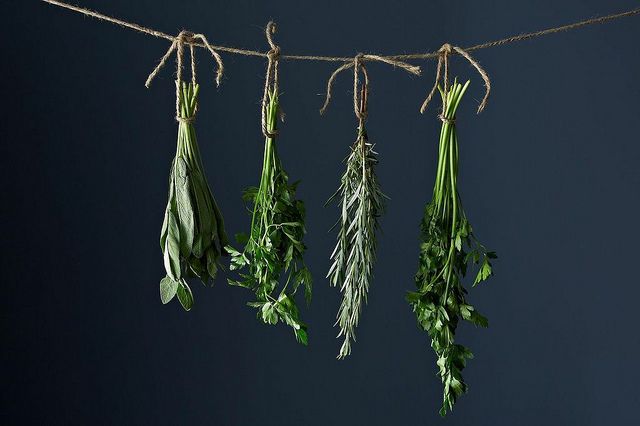
-
Drying out your herbs is a good option, too. "I oven-dry my leftover herbs," JsGirl notes. You can also hang them up to dry -- Lululovestocook adds: "I like to tie the herbs in a bunch and hang them in a dark place to dry, then save the dried herbs for future use."
- Herbs can be preserved with salt as well. Lauren's Plate has the recipe for success: "Preserving sage or other aromatic herbs in a coarse salt absorbs the moisture of the herbs and lasts about six months. First, remove the leaves from the stems. Then, in a mason jar, add salt to create a 1/2 inch-thick layer. Place the herbs on top of the salt layer, and create another layer of salt to cover the leaves. Keep repeating and end with a layer of salt. Tightly close the jar and store in cool place. When ready to use, wash them off to remove excess salt."
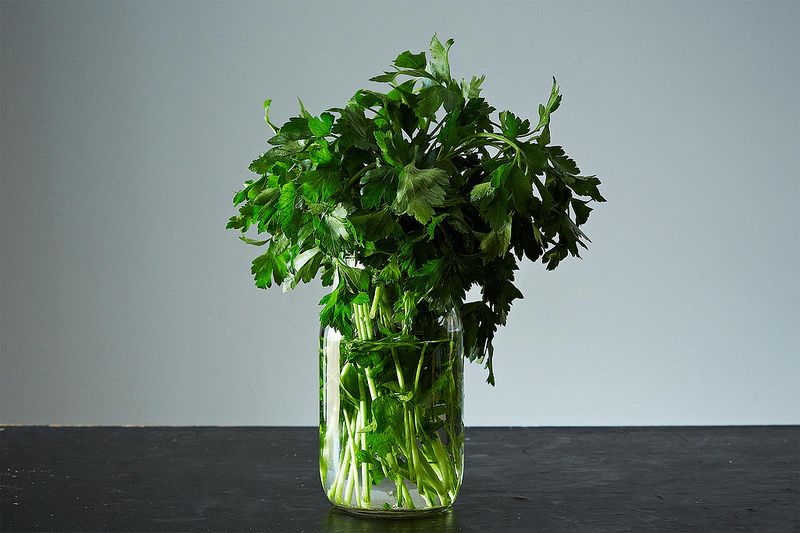
- And who says the herbs need to be frozen or dried? If they still have a stem, you can let the herb grow, as Foodelf does. "Pop [your herb] into a small container of water and keep it alive. I find that some sprigs actually start putting out roots -- then you can plant them. Thyme is actually quite robust and can last quite well in water, ready for your culinary requirements."
Preparing Mixes For the Future:
-
Compound butters are a great way to keep flavorful herbs for later. Petitbleu explains: "Simply soften some unsalted butter and whip in minced herbs and salt if you like. We make our herb butters on the stronger side, but you can go as mild as you like....roll the butter into logs in parchment paper, and pack in freezer bags. A tablespoon on grilled or seared meat, in soups, or even just on toast is wonderful."
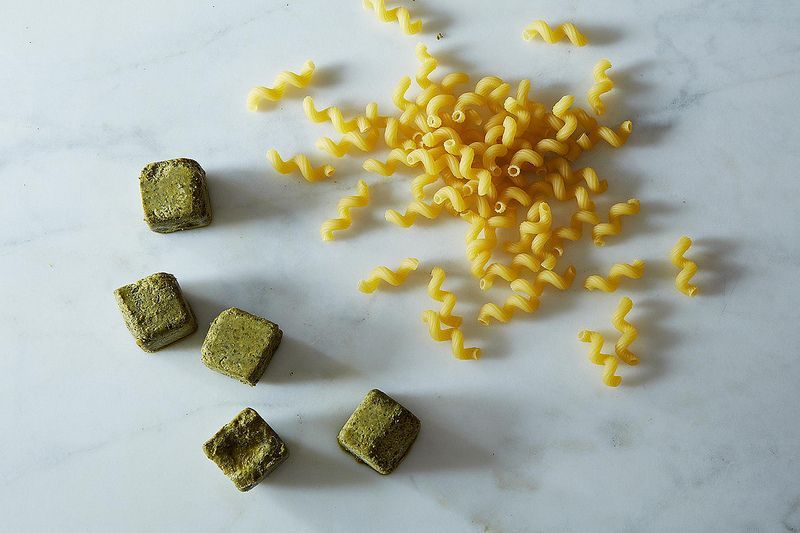
More: Expand your collection of go-to herbs -- here are 13 fresh herbs to use more often.
- Make a pesto and freeze it. You don't need basil, either -- Daria Faulkner says that mint pesto is a great choice as well.
- When asked how to save lemon balm, Meaghan F said to make an infused simple syrup with it.
- You can also incorporate fresh herbs into other garnishes to save, as Kizandtango says: "When I've got fresh herbs and they might start turning, I blend them into breadcrumbs...and freeze the breadcrumbs for later use. You get a lovely herb-y topping that way."
Tell us: How do you preserve your herbs?






See what other Food52 readers are saying.